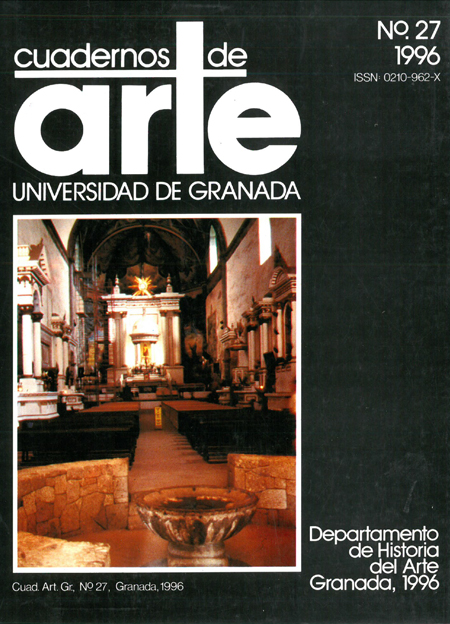The theoretical concept of the town in the Spanish Enlightenment; local police forces and the new ideas of order, comfort and public propriety
Keywords:
Municipal ordinances, Urban policy, Urban order, Urban history, Enlightenment, Spain, 18th centuryAbstract
During the period of the Enlightenment in Spain, a new public body, the Town or Municipal Police, grew up. This had its origins in the general concept of the Police as responsible for the achieving of human happiness within the absolute State and more precisely for the establishing in society of a sense of public well-being. This new force strives to facilitate good govemment and the well-being of inhabitants of the town by means of a varied series of measures designed to improve the conditions of urban social life. Special attention was paid to those features connected with establishing a better ordered society, the development of the proposal for urban comfort and the setting up of an aesthetically more pleasing 'face' to the buildings and streets of the 18th century town. In this context, then, a new concept of urban organization appeared, known in those times by such terms as order, comfort, and public propriety.Downloads
Downloads
Published
1996-11-01
How to Cite
Anguita Cantero, R. (1996). The theoretical concept of the town in the Spanish Enlightenment; local police forces and the new ideas of order, comfort and public propriety. Cuadernos De Arte De La Universidad De Granada, 27, 105–120. Retrieved from https://revistaseug.ugr.es/index.php/caug/article/view/10795
Issue
Section
Estudios
License
Los autores que publican en esta revista están de acuerdo con los siguientes términos:- Los autores conservan los derechos de autor y garantizan a la revista el derecho de ser la primera publicación del trabajo al igual que ser licenciado bajo una licencia Creative Commons que permite a otros compartir el trabajo con un reconocimiento de la autoría del trabajo y la cita de la fuente original, con un uso no comercial y siempre que no se hagan obras derivadas.
- Los autores pueden establecer por separado acuerdos adicionales para la distribución no exclusiva de la versión de la obra publicada en la revista (por ejemplo, situarlo en un repositorio institucional o publicarlo en un libro), con un reconocimiento de su publicación inicial en esta revista.
- Se permite y se anima a los autores a difundir sus trabajos electrónicamente (por ejemplo, en repositorios institucionales o en su propio sitio web) antes y durante el proceso de envío, ya que puede dar lugar a intercambios productivos, así como a una citación más temprana y mayor de los trabajos publicados (Véase The Effect of Open Access) (en inglés).


 ISSN-e: 2445-4567
ISSN-e: 2445-4567








